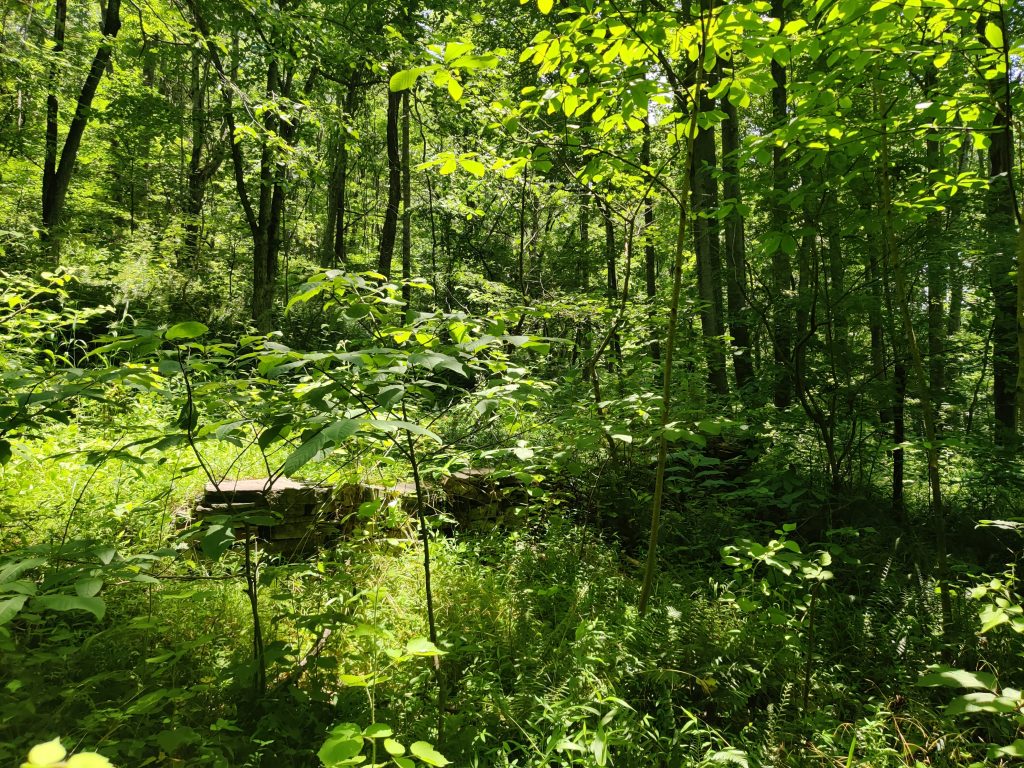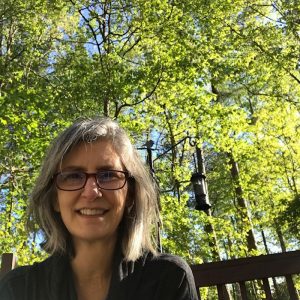
The seemingly untouched wilderness at the Bull Run Mountains Natural Area Preserve holds secrets. If you look carefully, you might notice some forest stands that are younger than others, evidence of long grown-over agricultural fields. You might come upon remnants of dwellings, or a group of gravestones poking up from the forest floor.
Evidence of people who settled in the mountains long before it became a preserve, these sites are waiting to be deciphered, their hidden histories yet to be revealed. BRMNAP’s cultural history fellow, Barinaale Dube, is working to uncover some of those histories for the rest of us. Specifically, the history of free Black settlement in the mountains, beginning in the 1820s.
Dube is working with Joe Villari, preserve manager, Karen White, president of the Afro-American Historical Association of Fauquier County, and Patrick O’Neil, NOVA Chapter head of the Archeological Society of Virginia and associate professor at NVCC. She is sifting through slave schedules, receipts for payments, Civil War soldier registers, census documents and deeds, images from aerial photos and oral histories from neighbors and descendants, in order to piece together the stories of this unresearched community.
An economics major with minors in classics and Africana Studies at Howard University, Dube says her fields of study have helped prepare her to do this work.
“Economics is about figuring out what resources you have and making them work for you, and classics gives me the tools I need to observe and understand the context of what I’m seeing,” she says. Her coursework in Africana Studies also makes her especially attuned to the untold stories of the Black families who resided on the mountain.
“I want to break down the lives of these people and give them their own narrative, outside of the lens of colonialism and imperialism,” she says.
Revealing their secrets, she states, is a way to reclaim valuable histories and practices. “I’ve really been influenced by the work of Wangari Muta Maathai,” she says, a Kenyan environmental activist and the first African woman to win the Nobel Prize. “She was able to reclaim environmentally conscious cultural practices. She advocated for them and integrated them into her work.”
Like Maathai’s reclaiming of her own cultural history, Dube hopes to reveal some of what might have been lost, until now, on Bull Run Mountain. “These cultural practices are so valuable. We need to find them and share them; otherwise we lose so much.”
Dube is posting her progress on the Bull Run Mountains Blog, where you can see the work that she and others are doing to uncover the secrets of the Preserve.
